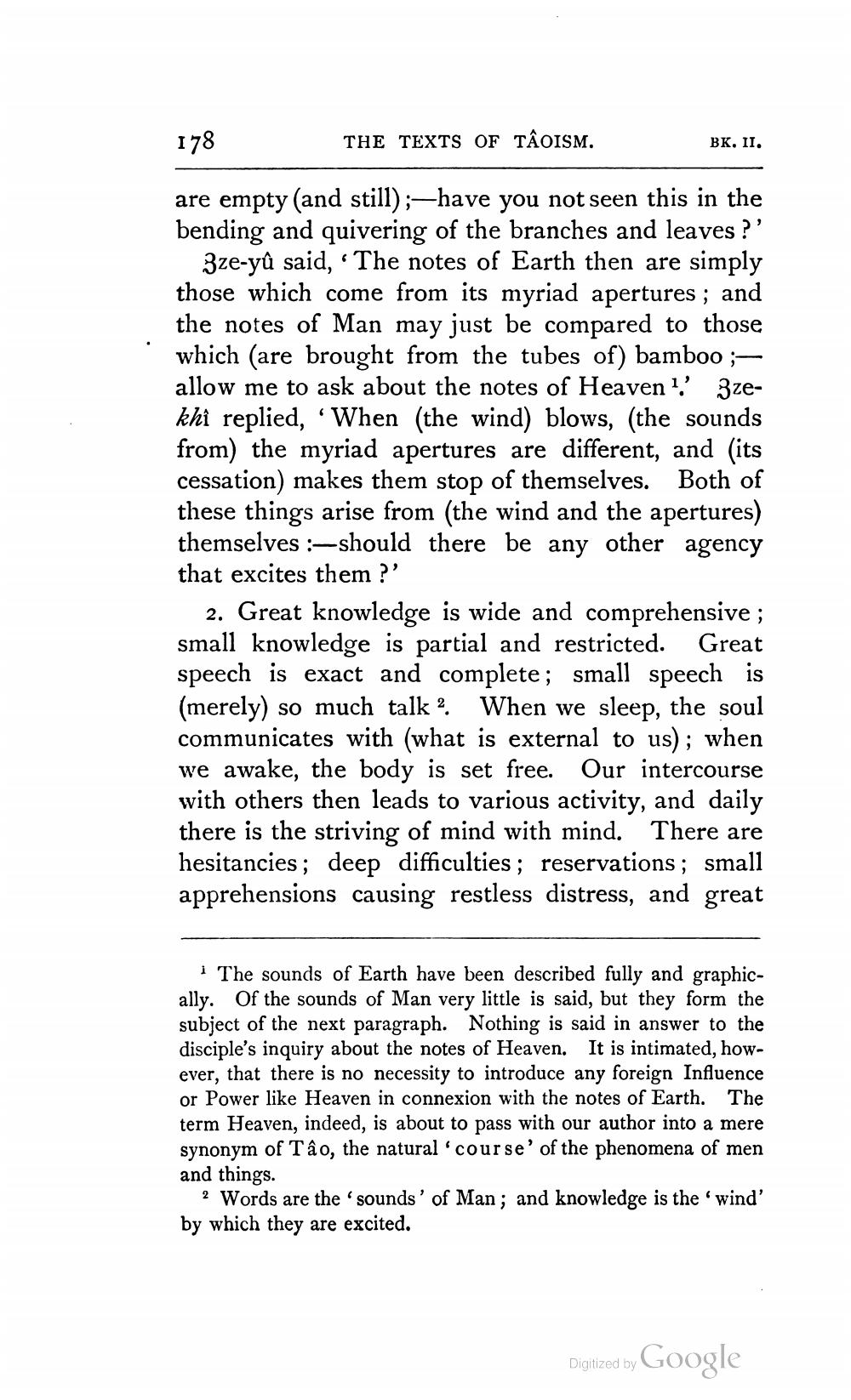________________
178
THE TEXTS OF TÂOISM.
BK, II.
are empty (and still) ;-have you not seen this in the bending and quivering of the branches and leaves ?'
Zze-yû said, “The notes of Earth then are simply those which come from its myriad apertures; and the notes of Man may just be compared to those which (are brought from the tubes of) bamboo ;allow me to ask about the notes of Heaven?' Zzekhi replied, “When the wind) blows, (the sounds from) the myriad apertures are different, and its cessation) makes them stop of themselves. Both of these things arise from (the wind and the apertures) themselves :-should there be any other agency that excites them ?'
2. Great knowledge is wide and comprehensive; small knowledge is partial and restricted. Great speech is exact and complete; small speech is (merely) so much talk 2. When we sleep, the soul communicates with (what is external to us); when we awake, the body is set free. Our intercourse with others then leads to various activity, and daily there is the striving of mind with mind. There are hesitancies; deep difficulties; reservations; small apprehensions causing restless distress, and great
i The sounds of Earth have been described fully and graphically. Of the sounds of Man very little is said, but they form the subject of the next paragraph. Nothing is said in answer to the disciple's inquiry about the notes of Heaven. It is intimated, however, that there is no necessity to introduce any foreign Influence or Power like Heaven in connexion with the notes of Earth. The term Heaven, indeed, is about to pass with our author into a mere synonym of Tâo, the natural course of the phenomena of men and things.
2 Words are the 'sounds' of Man; and knowledge is the 'wind' by which they are excited.
Digitized by Google




